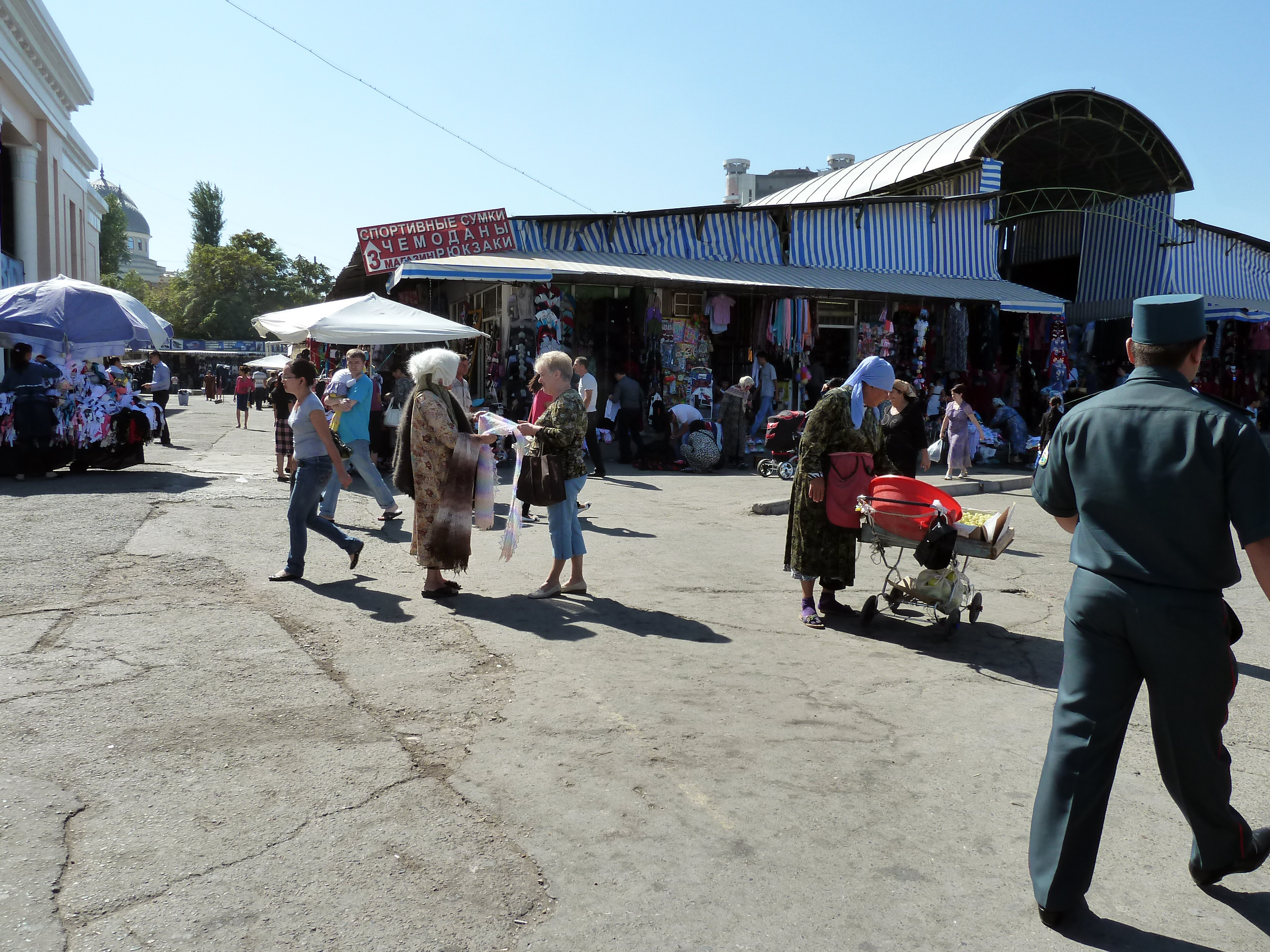Customers in front of a market hall in Uzbekistan
Copyright© ingalatvia, via flickr, CC BY-SA 2.0
Economic situation Moving towards a market economy
According to official figures, Uzbekistan’s economy has grown almost continuously by at least five per cent per annum in recent years. Moderate growth (1.9 per cent) in 2020 due to the COVID-19 pandemic was followed by a strong upswing (7.4 per cent) in 2021. The International Monetary Fund (IMF) is predicting that the growth rate will be 5.9 per cent in 2025.
The Uzbek economy is highly dependent on the world market prices for its main exports (gas, metals, cotton) and on the economic situation of its major trading partners, China and Russia. Russia’s war of aggression against Ukraine is having a major impact on Uzbekistan: food and transportation costs are going up, exports to Russia are declining, and so are remittances from Uzbek migrant workers in Russia.
In order to mitigate inflation, the government has introduced price controls, suspended import duties on basic foodstuffs, increased the minimum wage and set up a crisis response fund for Uzbek companies.
Comprehensive reforms
The economy is at the centre of Uzbekistan’s reform policies. In the past few years, the government has initiated numerous measures to improve the investment climate, increase competitiveness and create jobs. These measures include relaxing exchange rate policies, reforming taxes and customs duties, and gradually privatising state-owned companies.
Yet the general environment for private sector activity remains difficult. Potential investors are deterred by factors such as the continuing strong presence of the state in many economic sectors, lengthy approval procedures, a lack of legal certainty and inadequate infrastructure.
Widespread corruption is another major problem. Although Uzbekistan has steadily improved its ranking on the Corruption Perceptions Index (CPI) of the non-governmental organisation Transparency International over the past ten years, it is still (just about) in the bottom third of the list, ranking 121st out of 180 countries evaluated (2024).
Development potential
Thanks to its central geographical position and its many mineral deposits, Uzbekistan has good development prospects. The fuel industry, mechanical engineering, metal processing, transport manufacturing and electrical engineering are key pillars of the Uzbek economy. The textile industry, the electricity sector and the mobile telecommunications industry also offer potential for development. For foreign investors, the country can be a bridge to the entire Central Asian market.
The country’s young population can be regarded as another asset. If educational opportunities are improved, the Uzbek economy would be able to draw on a plentiful supply of well-trained workers.
As at: 16/06/2025
